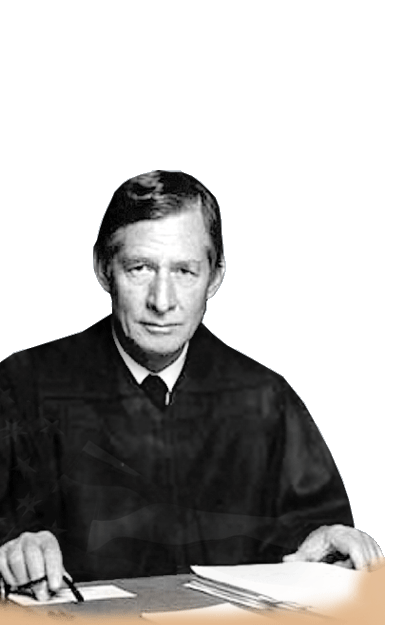 |
 |
 |
 |


| ||||||
|
Landmark rulings by Alabama federal court Judge Frank Johnson during the Civil Rights Movement helped to end segregation and enforce voting rights in the South. Early in his tenure with the U.S. District Court (1955-1979), Johnson ruled against segregated seating on city buses, affirming the victory of the Montgomery Bus Boycott of 1956. He became the first judge to order Alabama counties to put blacks on the voting rolls. He ordered the desegregation of Alabama schools, ended discrimination in the state's bus terminals and abolished Jim Crow practices in public libraries. Judge Johnson's rulings sometimes stopped violent attacks against activists. In 1961 he ordered the Klu Klux Klan (Klan) and Montgomery police to stop the beating and harassment of Freedom Riders attempting to integrate interstate bus travel. The "Bloody Sunday" beatings of voting rights marchers in 1965 motivated Judge Johnson to overrule the law used to try to stop the Selma to Montgomery March. Johnson's progressive decrees repeatedly defied racist Alabama Governor George Wallace, a law school classmate. The Klan began to call Johnson "the most hated man in Alabama." Terrorists burned a cross on the lawn of his home, bombed his mother's house and forced him and his family to live under constant federal protection for more than two decades. His mother's strong convictions concerning social issues influenced young Frank Minis Johnson Jr. He earned his law degree from the University of Alabama School of Law in 1943. Wounded twice while serving in World War II, he was discharged as a decorated Army captain. After the war, he established a law practice in Jasper, Alabama. Johnson later served as the U.S. Attorney for the northern district of Alabama (1953-1955). When President Dwight Eisenhower appointed him to the U.S. District Court in 1955, Johnson was the youngest federal judge in the country. A nomination by President Jimmy Carter led to 18 years of service on the U.S. Court of Appeals (1981-1999), where Judge Johnson served until his death. In 1993, the American Bar Association awarded Judge Johnson the Thurgood Marshall Award for his precedent setting civil rights rulings. In 1995, President Bill Clinton awarded him the Presidential Medal of Freedom, the country's highest civilian award. The federal courthouse in Montgomery, Alabama is named in Johnson's honor. |